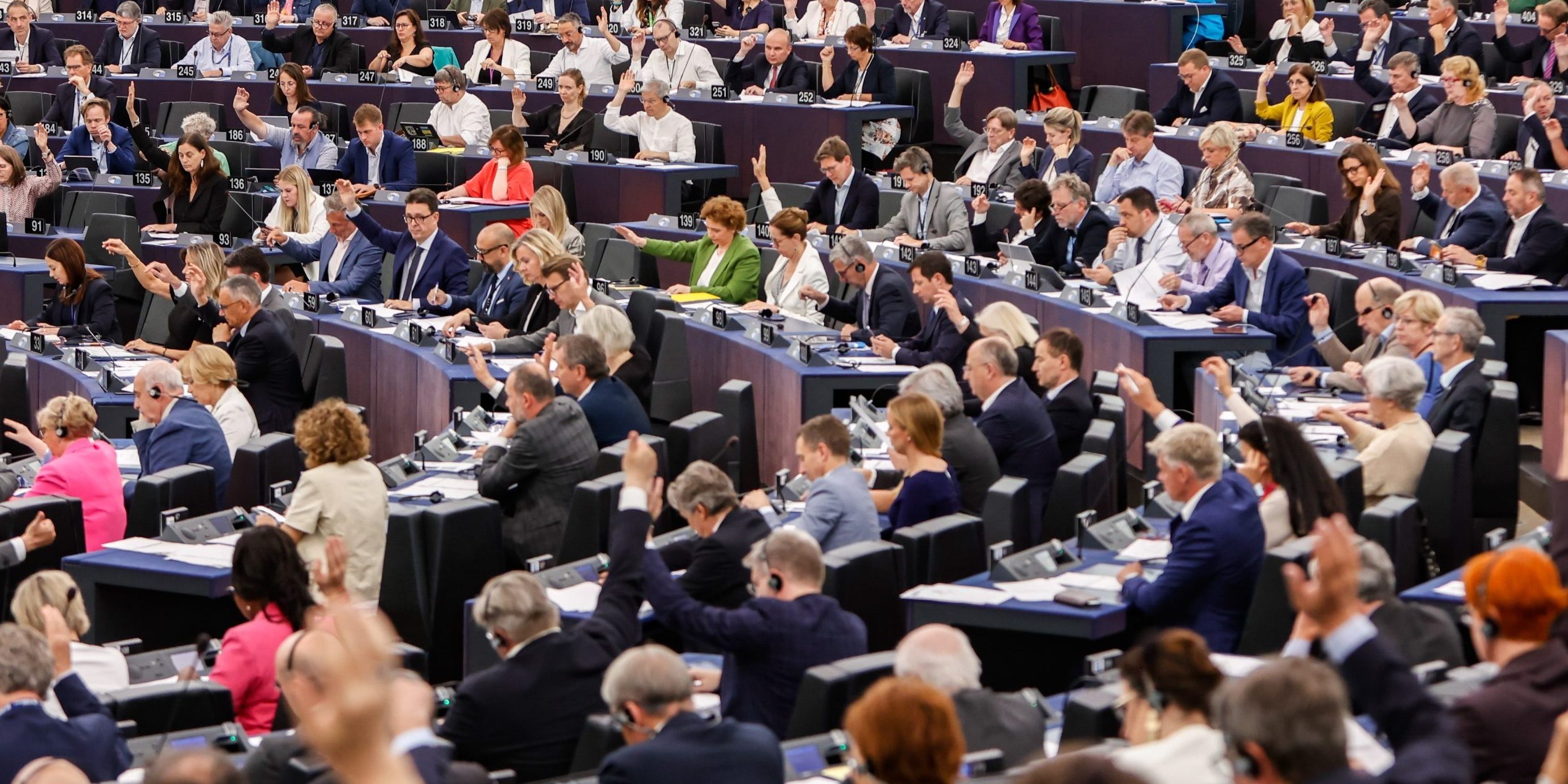
Packed plenary provides mixed results
Mandate concludes with conflicting votes.

The final plenary session of the 2019 – 2024 European Parliament mandate concluded in Strasbourg today, with a full agenda seeing a flurry of activity to round off this legislature. Some landmark files, benefitting workers and their communities, were successfully adopted, but a very worrying wade into potential austerity leaves a sour taste to this Strasbourg session.
Beginning with the positives, we now finally have adoption from the Parliament on the platform work directive, with the interinstitutional text ratified by a vote of 554 to 56. While we’ve been here before, this will be the last vote on platform work in the Parliament, and now paves the way for legislation to be enacted, despite the questionable lobbying tactics by a number of platform companies. Workers will now receive access to justice, and ultimately, the exploitative business model that this sector has been built upon will finally be addressed. Eurocadres will continue to work in this area as transposition and implementation become our next targets.
Products made from forced labour will now be banned within the Single Market, as 555 MEPs voted to guarantee that when verifiable information is received from international organisations, authorities and whistleblowers, products suspected of being made through forced labour will no longer be sellable. Companies must now take ownership of their supply chains, with fines for non-compliance and seizure of shipments of these goods.
This compliments the conclusion of the Corporate Sustainability and Due Diligence Directive, which, also after a protracted process, was adopted despite opposition from sways of ECR, EPP and Renew. With 374 votes in favour, companies can now be held responsible for their downstream distribution, transport and storage. While we are disappointed that the number of companies affected has been reduced during trilogue negotiations, this is a landmark text which provides a starting point for further action. In our own advocacy work, and as part of the Justice is Everybody’s Business campaign, we have been active players in calling for, shaping and, shortly, implementing this critical file.
Despite being severely watered down during interinstitutional negotiations, the Combating Violence Against Women and Domestic Violence Directive being agreed upon is a positive step forward. The workplace aspect, criminalisation of rape based on the lack of consent and role of trade unions, removed by certain Member States, are disappointing components to lose, yet the existence and ratification of this text is a step forward.
Unfortunately, the Parliament has also adopted new fiscal rules which place us on the precipice of a return to austerity, leaving Member States with the options of cutting €100 billion a year from their budgets from 2027 onwards, or raising the equivalent amount through taxation.
National governments are now in a position where they must choose between taxing corporate greed and making working communities and our most vulnerable pay the price.
A return to austerity would decimate communities, many of whom are still reeling from the pandemic, cost of living crisis and spiralling inequality. The MEPs who voted in favour of such a ruleset cannot call themselves progressive should the changes lead to the disproportionate slashing of budgets for essential public services, increased privatisation, and a subsequent growing of the gulf between the billionaire class and us.
While this mandate has provided many progressive files and policies, this vote leaves a sour taste as MEPs leave Strasbourg this week. The next session is set to take place in July, with a new legislator beginning from the 16th – 19th.
